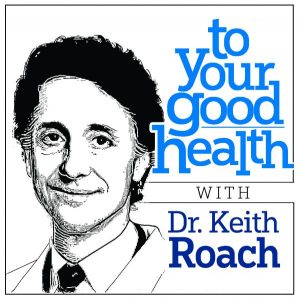GOOD HEALTH: Family history of breast cancer prompts man to get examined
By Dr. Keith Roach — January 16, 2023 DEAR DR. ROACH: My mother and both of her sisters had breast cancer in their 30s, with my mother eventually passing after her third bout at age 43. They all grew up in the same house that I grew up in. I’m now a 34-year-old father of three small children. I don’t want to die early because I need to be around for them, but the generalized advice I’m seeing is that I don’t need a cancer screening until my 40s.
DEAR DR. ROACH: My mother and both of her sisters had breast cancer in their 30s, with my mother eventually passing after her third bout at age 43. They all grew up in the same house that I grew up in. I’m now a 34-year-old father of three small children. I don’t want to die early because I need to be around for them, but the generalized advice I’m seeing is that I don’t need a cancer screening until my 40s.
Am I overly sensitive, or am I missing something that I should potentially screen for? — M.M.
ANSWER: With your mother and two aunts having breast cancer at such a young age, I would be concerned about an inheritable cancer gene such as BRCA1 and BRCA2. This gene may not have been identifiable at the time they had their cancers, as the first test became available in 1996. It is worth a discussion with a genetic counselor to consider testing for you.
Men with the BRCA1/2 genetic mutations are at risk to develop breast cancer themselves and are recommended to do monthly breast self-examinations starting at age 35, with a clinician exam yearly. A PSA test is also recommended for men who are positive for BRCA2 (and maybe for men with BRCA1), as men with these mutations are more at risk for prostate cancer at a younger age than average-risk men.
Although BRCA increases the risk of colon cancer, all men should get colorectal cancer screenings at age 45, regardless of BRCA status. Those with a strong family history of colon cancer should speak with an expert about the right time to begin screening.
I honor you for considering your family and expect you are doing as much as you can with your lifestyle to keep yourself healthy. A diet including plenty of fresh fruits and vegetables, with little to no processed meat, has been shown to reduce cancer risk as well as heart disease risk, which is still the major cause of death in industrial societies.
The most likely causes of death in men your age include motor vehicle accidents and suicide. These are not completely preventable, but driving safely, not texting while driving, never driving while intoxicated and seeking help with symptoms of depression go a long way at reducing your immediate risk so that you can continue to be there for your children.
***
DEAR DR. ROACH: I first tested positive for COVID eight days ago. Should I start Paxlovid now? — P.M.
ANSWER: This medicine has made a huge reduction in the number of people who get so sick from COVID that they need to be hospitalized, but only when used properly. This means it has to be used at the right time — ideally within 24 hours of getting sick and certainly within five days. It’s not likely to be of any help to you eight days after symptom onset.
The medicine is of most value to people who are at high risk of severe COVID. This includes people who are unvaccinated, people over 65 and people with high-risk conditions such as advanced HIV, organ transplantation or other severe problems with the immune system (including cancer chemotherapy and similar powerful drugs used for autoimmune diseases). Healthy, younger, vaccinated people with initial mild to moderate symptoms are at low risk for severe COVID (as of the time of this writing, with the omicron strains currently circulating) and do not benefit much from Paxlovid.
Dr. Roach regrets that he is unable to answer individual questions, but will incorporate them in the column whenever possible. Readers may email questions to ToYourGoodHealth@med.cornell.edu.
(c) 2023 North America Synd., Inc.
All Rights Reserved







